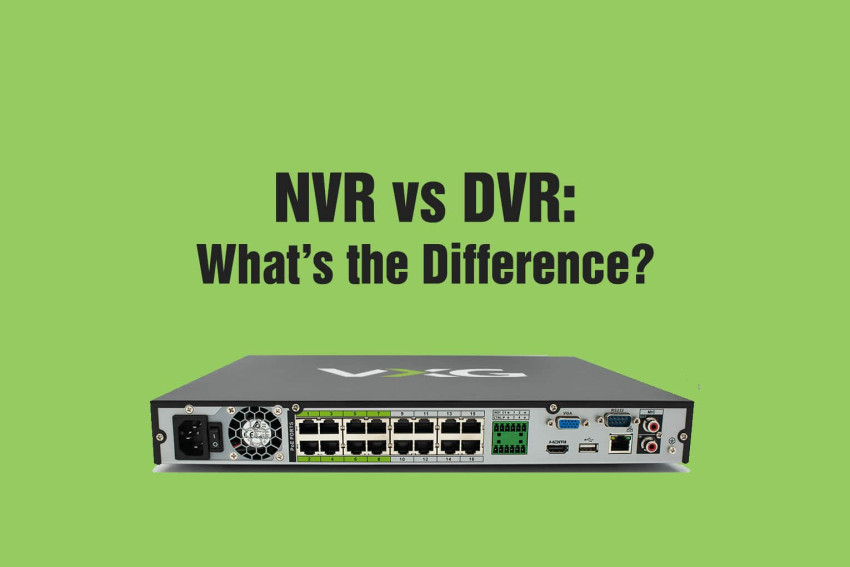
In the world of security and video surveillance, there are two primary types of systems used to record and store video footage on-premise: Network Video Recorders (NVRs) and Digital Video Recorders (DVRs). While both NVRs and DVRs serve the same purpose of recording video, there are several key differences between the two technologies.
What is a DVR?
DVR stands for Digital Video Recorder, it is a device that records and stores video footage from analog cameras. A DVR is essentially a computer that is designed to capture and store video footage. When a camera is connected to a DVR, the device converts the analog signal from the camera into a digital format that can be stored on a hard drive. The video can then be played back on the DVR or exported to another device.
What is an NVR?
NVR stands for Network Video Recorder, and it is a device that records and stores video footage from IP cameras. A NVR is essentially a specialized computer that is designed to capture and store video footage from multiple IP cameras. When an IP camera is connected to an NVR, the device captures and stores the video footage in a digital format on a hard drive. The video can then be played back on the NVR or exported to another device.
What are the differences between NVR and DVR?
Camera Compatibility
One of the primary differences between a NVR and DVR is camera compatibility. DVRs are designed to work with analog cameras, while NVRs are designed to work with IP cameras. If you have an existing analog camera system, you will need a DVR to record and store video footage. If you are installing a new surveillance system or upgrading an existing system, you will need to choose between IP cameras and analog cameras.
Video Quality
Another significant difference between a NVR and DVR is video quality. Since IP cameras capture video footage in a digital format, the video quality is generally higher than that of analog cameras. This means that NVRs are capable of recording and storing higher quality video footage than DVRs.
Scalability
NVRs are generally more scalable than DVRs. This is because NVRs are designed to work with IP cameras, and they can handle a larger number of cameras than DVRs. This makes NVRs a better option for larger surveillance systems.
Remote Access
Most of NVRs and DVRs allow you to access your surveillance system remotely through a web browser from a local network or through Internet if the device has a public IP, which requires port forwarding. Often there are limitations on remote oprations, such as number of connected clients. In general, NVRs are most advanced when it comes to remote access and have fewer limitations, compared to DVRs.
Storage
Finally, there is a difference in storage capacity. Because NVRs are designed to handle higher quality video footage, they require more storage capacity than DVRs. NVRs typically use hard drives with larger capacities to accommodate the higher quality video footage, while DVRs use smaller hard drives.
Conclusion
In conclusion, while both NVRs and DVRs serve the same purpose of recording and storing video footage, there are several key differences between the two technologies. NVRs are designed to work with IP cameras, provide higher quality video footage, are more scalable, allow for remote access, and require more storage capacity. DVRs, on the other hand, are designed to work with analog cameras, which capture lower-quality video, and are limited in terms of scalability. When choosing between a NVR and DVR, it is important to consider your specific needs, budgets and requirements to determine which system is best for your surveillance needs.




